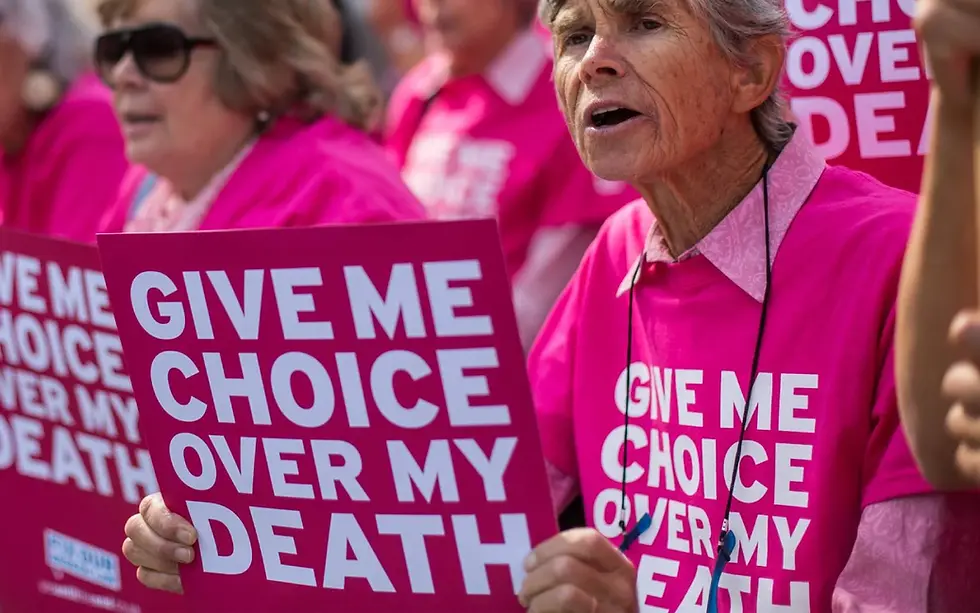The Case for Assisted Dying: An Op-Ed
- Joshua Foster

- Nov 20, 2024
- 3 min read
Updated: Dec 23, 2024
The debate surrounding assisted dying is often charged with emotion, and rightly so. It touches the very core of what it means to live and to die with dignity. As the UK considers new legislation to allow terminally ill individuals the legal right to choose the timing and manner of their death, we have an opportunity to show compassion and respect for those enduring unimaginable suffering.
For too long, people with progressive and incurable illnesses have had their voices overshadowed in this debate. These conditions often lead to unrelenting physical and emotional pain, where even the best medical care cannot guarantee comfort or dignity. Many face the prospect of prolonged suffering, stripped of autonomy and control over their own lives. For some, the ability to make the ultimate decision about their end-of-life care is a vital source of solace.
Opponents of assisted dying often argue that it undermines the sanctity of life or opens the door to potential abuses. But these concerns are not borne out by evidence from countries where such laws already exist. In jurisdictions like Switzerland and parts of the United States, assisted dying is strictly regulated, with safeguards to protect vulnerable individuals. These measures include requiring multiple medical opinions, psychological evaluations, and proof of informed consent.
In the UK, we must ensure similarly strict provisions are in place, with robust checks and thorough assessments carried out to confirm the patient’s eligibility, soundness of mind, and genuine consent. Such safeguards are critical in ensuring the process remains ethical and focused on those who truly need it.
Critics also suggest that improving palliative care is the better solution. But this isn’t an either-or situation. We can—and must—invest in world-class palliative care while recognising that even the best hospice environments cannot alleviate all suffering. Pain, breathlessness, and the loss of dignity can persist despite our best efforts. For some, the knowledge that they have a choice to end their suffering provides a profound sense of control, even if they never exercise that choice.
The current legal framework in the UK is cruel and inconsistent. Those who wish to end their suffering are often forced to travel abroad to countries like Switzerland, at great financial and emotional cost, or risk breaking the law at home. This places an intolerable burden on families, some of whom have faced prosecution for acts of love and mercy. It is time to stop outsourcing this issue and instead provide a safe, legal, and ethical framework for assisted dying here in the UK.
This debate is not about hastening death—it is about empowering people to make their own choices in the face of inevitable decline. A progressive society listens to its citizens and respects their autonomy. Denying terminally ill individuals the right to choose how they die perpetuates unnecessary suffering and robs them of control over their most personal decisions.
In the end, assisted dying is about compassion. It is about recognising that while life is precious, the right to choose how we exit this world is equally sacred. By passing this legislation, we can offer hope—not the hope of a cure—but the hope of dignity, agency, and peace in the face of suffering. It’s time for the UK to show the courage to stand with those who need this choice most.

_edited.png)




Comments